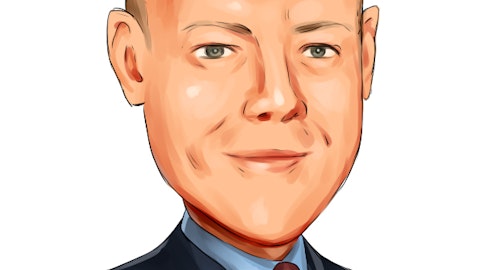Jim Rogers: “the Fed will self-destruct” (VoiceOfRussia)
Jim Rogers, a well known commodity investing guru, believes that the Federal Reserve is doing more harm than good and should be abolished before it’s too late. He also prefers “Chinese open markets” while criticizing the state-controlled economy of the US. Rogers, a former partner of George Soros and a pioneer of commodity investing, is an outspoken critic of the Fed and a big believer in the advent of the “Asian century”. While his views are quite unorthodox, he should at least be respected for following his own advice. The eccentric millionaire moved to Asia several years ago and his children are studying Mandarin at a school in Singapore…
Grand Theft Auto maker buys out Carl Icahn (CNN)
Icahn first took a big stake in Take-Two Interactive Software, Inc. (NASDAQ:TTWO) in late December 2009, buying around 9 million shares for just under $8. The activist investor has boosted and reduced his overall stake throughout the years. As of the end of the third quarter, Icahn was Take-Two’s largest shareholder. His 12 million shares gave him a 12% stake in the company. But on Tuesday, Take-Two announced that it is buying back all of Icahn’s shares for a little over $200 million, or about $16.93 per share. That’s more than double the amount Icahn first paid in 2009.
Ex-SAC analyst takes stand in Steinberg’s insider trading trial (Reuters)
The U.S. government’s main witness in the insider trading case against Michael Steinberg took the stand Tuesday to testify against his former boss at Steven A. Cohen‘s SAC Capital Advisors. Jon Horvath, a former analyst who pleaded guilty to insider trading charges last year and faces up to 45 years in prison, told jurors he is cooperating with the government in hopes that he will not get anything close to the maximum prison term. “I’m hoping to avoid jail time,” Horvath, 44, said. Steinberg is the first employee of SAC to face trial in the long-running investigation of Cohen’s hedge fund that resulted in its $1.2 billion plea deal earlier this month.
Can Six Top Hedge Funds Raise Capital in China? (InstitutionalInvestorsAlpha)
Hedge fund managers in the West have been investing in China for the better part of a decade, but they have not been able to raise money from individual investors there — until now. With the launch of a pilot program that will allow foreign hedge fund managers to raise money in mainland China and invest it in their funds back home, a select group of managers has gained access to well-heeled investors in the world’s second-largest economy. The qualified domestic limited partner (QDLP) program will allow six large hedge fund firms to raise $50 million each. Although the QDLP program looks like a coup for the firms that have…
Who should pay hedge fund-nominated directors? (FierceFinance)
When an activist hedge fund succeeds in placing directors on a board, who does that director really work for, the hedge fund or all shareholders? You could argue that hedge funds are included as shareholders and therefore there really is no issue. But that might be simplifying an issue DealBook says is threatening to “upset the stuffy world of corporate governance.” It argues “the simmering dispute around director compensation from third parties is the latest front in the growing war of influence being waged between activist hedge funds and corporate boards.”
More hedge funds and asset managers to launch reinsurers: EY (Artemis)
According to global assurance, tax, advisory and transactions firm EY (Ernst & Young) more asset managers are likely to launch their own reinsurance firms as they seek to emulate the successful hedge fund reinsurer strategy to leverage reinsurance premiums as a source of capital. Hedge funds have been involved in the reinsurance space for many years, by investing directly in reinsurer equity as well as having been one of the early investors in instruments such as sidecars, catastrophe bonds and other insurance-linked securities (ILS). Now many of these sophisticated asset managers look to the reinsurance market as a way to build new sources of permanent capital by operating their own reinsurer.
Recommended Reading:
Prescott Group Capital Management Raises Position in Bluephoenix Solutions




